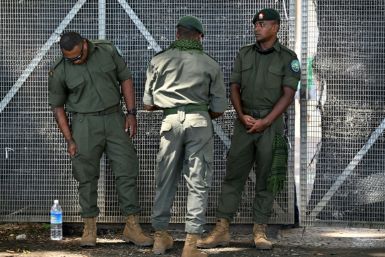Australia and Indonesia: What is Tony Abbott Going to Talk?
Australian Prime Minister Tony Abbott's decision to visit Indonesia is his first trip abroad after assuming office is clear indication where the stakes lie for the new government. Unlike his predecessor, Kevin Rudd, who sought opportunities to align with the West on key international issues like Syria, Mr Abbott is more focused on sorting problems at home and in the immediate neighbourhood.
But if Mr Abbott is expecting his visit to Indonesia to be a quiet business affair, it may no longer be so.
Coming in the backdrop of the unfortunate refugee boat tragedy in which as many as 50 people are feared dead, his meetings in Indonesia is expected to face some international scrutiny.
The Indonesian military is already being blamed for the deaths of asylum seekers and allegations are rife that Australian authorities took more than 24 hours to respond to help the victims of the tragedy.
Australia shares very close linkages with Indonesia. In aid terms, Australia's assistance to Indonesia in 2013-2014 will be worth an estimated $646.8 million, making it the country's largest bilateral aid program.
Refugee question
However, relations between the two countries have faced some strain, following the Abbott government's strategy to stop people trying to seek asylum in Australia by boat. The Australian navy has been authorised intercepting these boats and turning them away. The strategy also includes plans to pay Indonesian villagers to become informants about refugee boats departures.
However, Mr Abbott took all the pains to downplay the refugee issue. Before taking off for Jakarta, the prime minister stressed the importance of the Australia- Indonesia relationship.
"I am very pleased to be going to Indonesia. We will be covering a range of matters because this is an important relationship and it's important to get it right at the start of this new Government," he was quoted saying.
The refugee question apart, Abbott is expected to talk about trade and business ties between two countries.
Trade linkages
Both Australian and Indonesia businesses expect to gain trade certainty and reduction in tarrif from the ASEAN-Australia-New Zealand Free Trade Agreement (AANZFTA) which came into force recently.
Further, negotiations are underway on an Indonesia-Australia Comprehensive Partnership Agreement (IA-CEPA) to further liberalise bilateral trade, encourage greater foreign direct investment in Indonesia and capacity building in agriculture, mining, services and energy and the green economy.
In terms of business ventures, Australia has a major interest in Indonesia's mining industry. Around, 38 Australian-listed companies are active in more than 120 mining ventures across Indonesia. The list includes BHP Billiton, Newcrest, Leighton and Thiess.
There is also increasing interest in Indonesia's agribusiness sector. At $2.3 billion, Indonesia is Australia's third-largest agriculture export market behind China and Japan. Australian companies have also increased their presence in other industries, including services, infrastructure, clean energy and environmental sectors.
Live cattle exports
Much to the anguish of animal right activists, Abbott is also expected to take up the issue of Australia's live cattle exports to Indonesia.
Australia's live cattle exports to Indonesia has been on shaky ground since live exports were abruptly halted under the Gillard government following an ABC Four Corners report exposing animal cruelty in Indonesian abattoirs.
On the other hand, Indonesia has expressed interest in buying Australian land to produce beef, an idea that has not gone down well among the Greens.
Boat arrivals unabated
Meanwhile, even as Mr Abbott arrives in Indonesia, refugee boat arrivals continue unabated. Reports say that a new group of asylum-seekers which includes approximately 81 men, women and children has been offloaded at Christmas Island after being found by Australian naval vessels.






